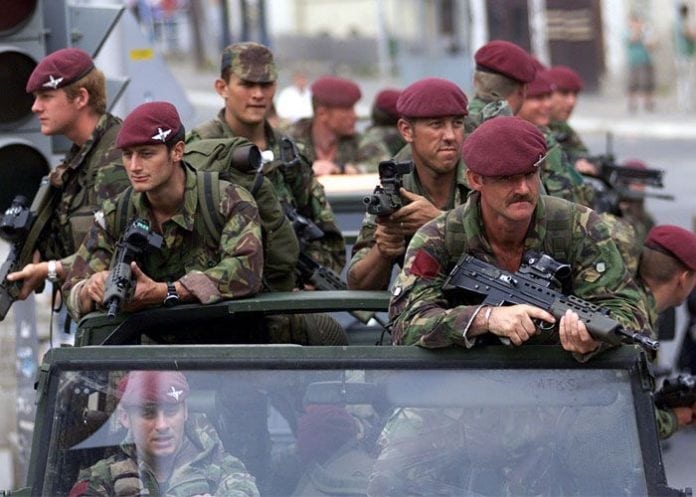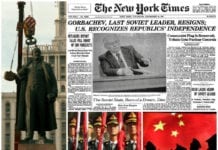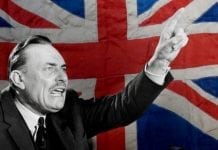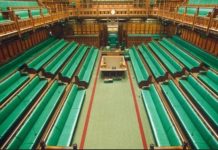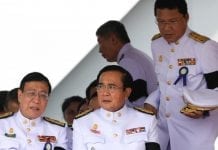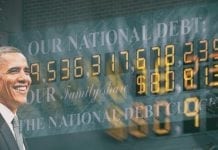A recent study of worldwide military capabilities has revealed that Great Britain is the second most powerful country in the world and the only genuine Global Power behind the United States
Researchers at European Geostrategy broke global powers down into four categories: Super Power, Global Power, Regional Power and Local Power.
The United States took the top slot as the world’s super power, while Britain took the only Global Power slot, bringing her in second behind America.
More – The Greatest Generation, World War Two Diaries
Regional powers include France, India and Germany, while local powers were those such as Italy, Brazil, and Turkey.
The organisation European Geostrategy rate the United Kingdom as a global power, they define this as:
“A country lacking the heft or comprehensive attributes of a superpower, but still with a wide international footprint and [military] means to reach most geopolitical theatres, particularly the Middle East, South-East Asia, East Asia, Africa and South America.”
The British Armed Forces comprise the Royal Navy, a blue-water navy with a comprehensive and advanced fleet; the Royal Marines, a highly specialised amphibious light infantry force; the British Army, the UK’s principal land warfare force; and the Royal Air Force, with a diverse operational fleet consisting of modern fixed-wing and rotary aircraft.
The country is a major participant in NATO and other coalition operations and is also party to the Five Power Defence Arrangements.
Recent operations have included Afghanistan and Iraq, peacekeeping operations in the Balkans and Cyprus, intervention in Libya and again operations over Iraq and Syria.
Overseas defence facilities are maintained at Ascension Island, Belize, Brunei, Canada, Diego Garcia, the Falkland Islands, Gibraltar, Kenya, Bahrain and Cyprus.
The UK still retains considerable economic, cultural, military, scientific and political influence internationally. It’s a recognised nuclear weapons state and its defence budget ranks fifth or sixth in the world. The country has been a permanent member of the United Nations Security Council since its inception.
The United Kingdom also scores highly in the Chinese ranking system called ‘Comprehensive National Power’, this is a putative measure, important in the contemporary political thought of the People’s Republic of China, of the general power of a nation-state.
CNP is reportedly calculated numerically by combining various quantitative indices to create a single number held to measure the power of a nation-state. These indices take into account both military factors (known as hard power) and economic and cultural factors (known as soft power). CNP is notable for being an original Chinese political concept with no roots in either contemporary Western political theory, Marxism-Leninism, or pre-20th century Chinese thinking.
There is a general consensus that the United States is the nation with the highest CNP and that mainland China’s CNP ranks not only far behind the United States but also behind the United Kingdom, Russia, France and Germany.
The key in this matter is that while countries like China for example have a larger military than the United Kingdom, it does not have the logistical capability to deploy, support and sustain those forces overseas in large numbers.
Professor Malcolm Chalmers, director of UK Defence Policy Studies at the renowned Royal United Services Institute, says Britain would have a clear advantage in a straight fight at an equidistant location. This was described in a 2011 Briefing Paper:
“The UK will never again be a member of the select club of global superpowers. Indeed it has not been one for decades. But currently planned levels of defence spending should be enough for it to maintain its position as one of the world’s five second-rank military powers (with only the US in the first rank), as well as being (with France) one of NATO-Europe’s two leading military powers. Its edge – not least its qualitative edge – in relation to rising Asian powers seems set to erode, but will remain significant well into the 2020’s, and possibly beyond.”
According to Business Insider, Chalmers has since expanded on this:
“I think my 2011 comment remains valid. If you take individual elements of front line military capability – air, sea, land — the UK armed forces continue to outmatch those of China in qualitative terms by some margin. The UK also has greater capabilities for getting the most out of these forces, through key enabling capabilities (command and control, intelligence, strategic transport).
Not least, the UK has greater capability than China for operating at range. China (and even more so other Asian powers) remain focused on their immediate neighbourhoods, with limited capabilities for power projection. This is likely to change over the next decade.
For now, though, China would still be out-matched qualitatively in a ‘straight fight’ with the UK in an equidistant location (the south Atlantic? The Gulf?), and would be unable to mobilise a force big enough to outweigh this quality gap.
China’s quantitative advantages would come into play in the event of a conflict in its own neighbourhood – and its qualitative weaknesses would be less important, though still significant. So my statement was never meant to imply that the UK could outmatch China off the latter’s own coastline.”
Some people like to quote numbers from sites like Global Firepower, a site that rates countries on numbers without any regard for their ability to deploy, sustain and support those numbers, indeed it is the only place where a country gets a higher rank with 100 Soviet-era tanks than a country with 90 modern main battle tanks.
However when it comes to ‘soft power’, according to a study earlier this year, France has overtaken the UK in soft power.
France surpassed the US and Britain as the world’s top soft power, according to an annual survey examining how much non-military global influence an individual country wields. Britain headed the list two years ago, but was edged off top spot by the US last year.
However, the survey cites the election of Donald Trump, the Brexit vote and the election of Emmanuel Macron as factors that have shifted global perceptions.
The report found that “despite the looming public negotiations the UK’s objective soft power assets both state and privately owned remain strong”. But it warned the polling showed Britain’s rating was falling, largely due to a decline in favourability among European countries. Outside the EU, perceptions of the UK remained static.
Soft power is a concept developed by Joseph Nye of Harvard University to describe the ability to attract and co-opt rather than coerce, use force or give money as a means of persuasion.
Soft power is the ability to shape the preferences of others through appeal and attraction. A defining feature of soft power is that it is noncoercive; the currency of soft power is culture, political values, and foreign policies.
Recently, the term has also been used in changing and influencing social and public opinion through relatively less transparent channels and lobbying through powerful political and non-political organisations.
In 2012, Nye explained that with soft power, “the best propaganda is not propaganda”, further explaining that during the Information Age, “credibility is the scarcest resource”.
The Soft Power 30, which uses a composite index to examine the strength of soft power assets at the disposal of countries, rates the top performing countries in order as France, the UK, US, Germany and Canada.
Outside the top five, Japan and Switzerland have risen to sixth and seventh respectively. Overall the survey shows a sharp reversal from last year’s narrative of a Europe in soft power decline.
Described by Professor Joseph Nye, who developed the concept of soft power, as “the clearest picture to date”, it is the first index to include the rising importance of digital assets and to use international polling to gauge national reputations across the world. – UKDefenceJournal.org.uk
–
– Albert Jack
–
Read – Is it time to drive Islam out of Europe?
Read – The Slow Death of Europe
Join – Europe in Danger on Facebook
–
You can follow Albert on Twitter and Facebook and comment on the story below
–

